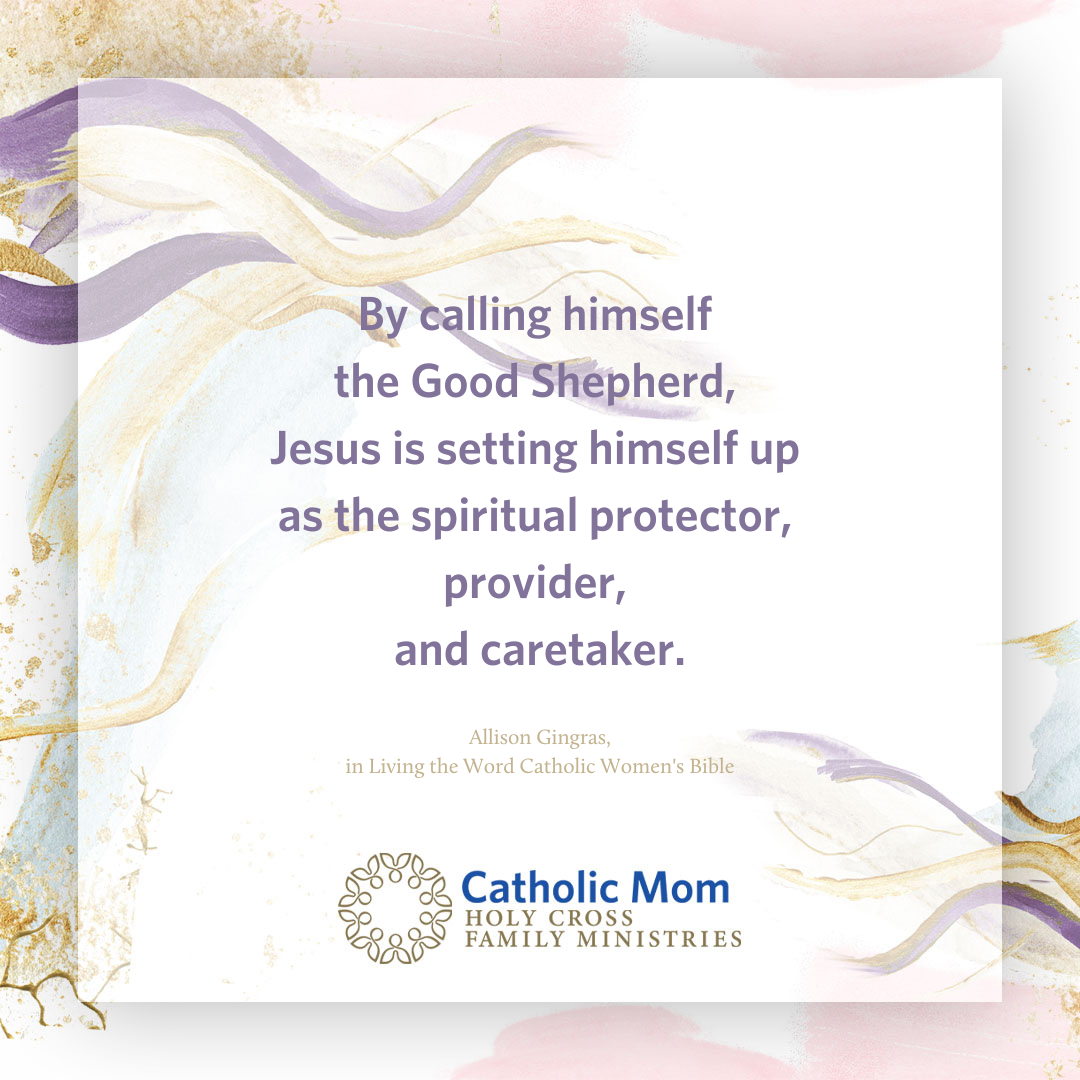Although we know that Jesus learned carpentry at the knee of Joseph, it seems he also had a soft spot in his heart for shepherds. Maybe Mary had repeated the story to him of the humble group of men who followed the star to the stable in Bethlehem. Or maybe he took after God, his Father, who saw in the role of the shepherd one who protects, provides, and guides. In any case, when Jesus calls himself the “Good Shepherd” in John 10, it is clear that he is calling those who follow him into a special kind of relationship.
Sheep are not very bright. Sheep possess a strong flocking instinct, which can lead to a failure to act independently of one another, finding themselves in precarious situations. They need someone to be responsible for their welfare and safety. By calling himself the Good Shepherd, Jesus is taking up this challenge, setting himself up as the spiritual protector, provider, and caretaker.

Like his Father, who promised to safeguard his flock from false shepherds and predators, Jesus recognizes that in fulfilling the prophecy of the Messiah, he himself will become that True Shepherd—seeking the lost, returning the stray, and binding up the weak and broken (see Ezekiel 34:16).
Above all, as the Good Shepherd, he will safeguard the gate, alert for predators and thieves who would steal those who wander away, as St. Peter warns in his first epistle:
Be sober, be watchful. Your adversary the devil prowls around like a roaring lion, seeking some one to devour. (1 Peter 5:8, RSV2CE)
Copyright 2023 Allison Gingras
Images: Ave Maria Press
This excerpt from the Living the Word Catholic Women’s Bible is reprinted with permission of the publisher, Ave Maria Press.